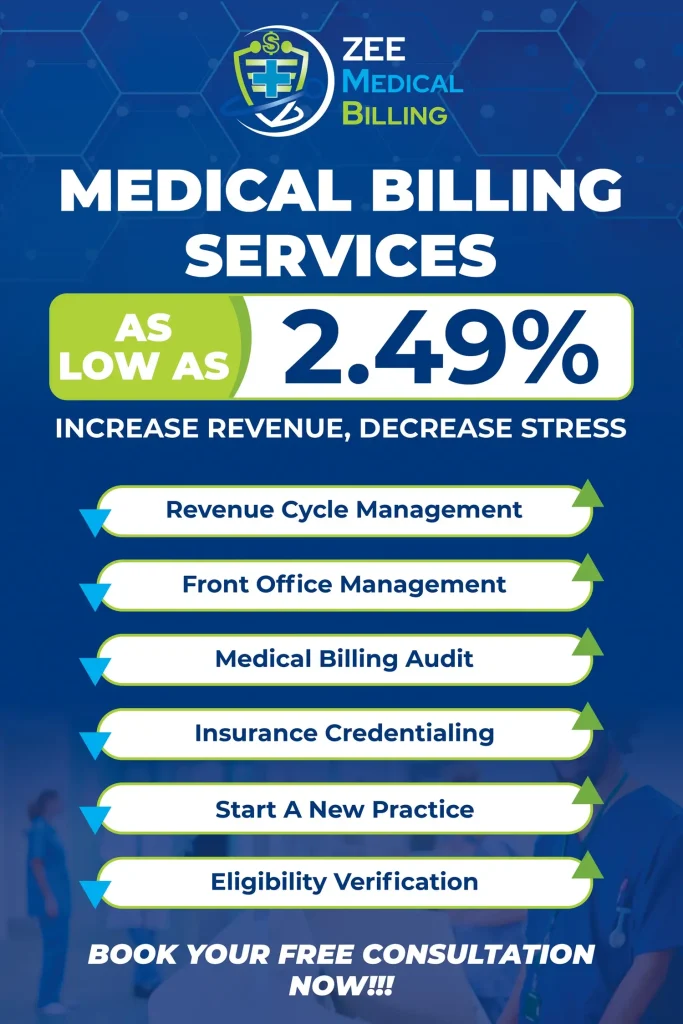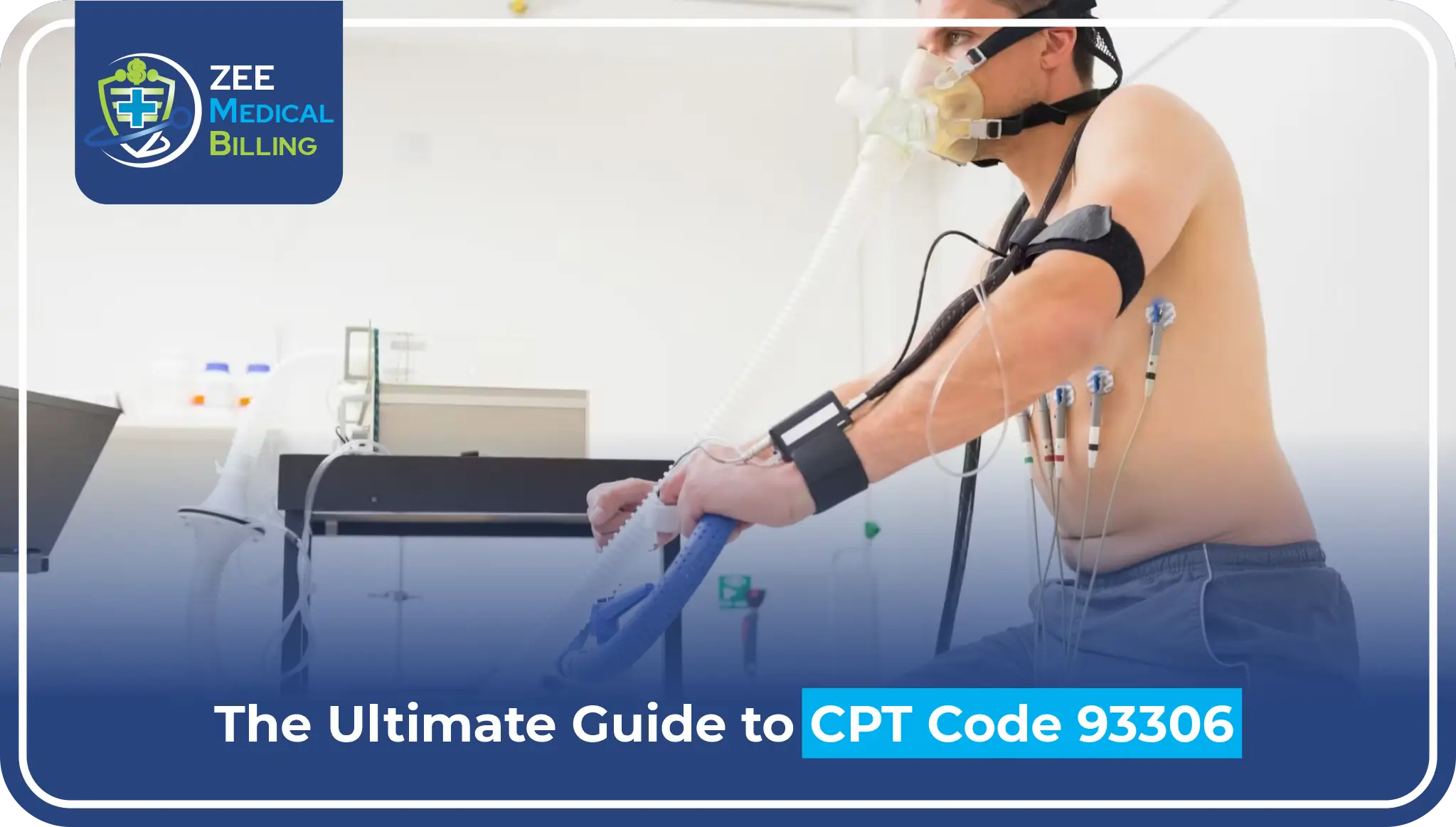Knowing how to use modifiers correctly is important in medical coding. This helps ensure proper payment and prevents claim denials. Modifier 58 is a crucial tool used during the postoperative period for reporting related or staged procedures.
This article will help you understand the definition and correct use of this modifier. We will also cover the documentation needs and compare them to similar modifiers like 78 and 79. This way, you can use it confidently and correctly.
What Is Modifier 58?
Modifier 58 is defined by the CPT Manual as follows:
Modifier 58 describes a procedure or service that takes place in stages or has a connection. The same doctor or qualified health care professional performs this during the recovery period.
They add it to a procedure code to show that the procedure was planned or expected. The procedure might be more complex than the first one. It could also be for treatment after a diagnostic procedure. Health professionals use it only during the global period of a previously performed procedure.
Also Read: When and How to Use Modifier 57 in Medical Coding?
Key Attributes of Modifier 58:
- Must be used during a global surgical period (typically 10 or 90 days).
- Must involve the same physician or group.
- Must be for a related, staged, or more extensive service.
When Should Modifier 58 Be Used?
Use Modifier 58 in any of the following situations:
1. Staged Procedures
- The medical team planned the follow-up procedure at the time of the initial surgery.
Example: A surgeon performs a two-part surgery and plans the second stage after the initial wound heals.
2. More Extensive Procedures
- A more extensive procedure is required because of the patient’s condition or diagnosis progression.
Example: Initial excision of a lesion reveals a malignancy, and the patient returns for a wide excision.
3. Therapeutic Procedure Following Diagnostic Procedure
- A diagnostic procedure results in the need for a therapeutic surgery during the postoperative period.
Example: A diagnostic laparoscopy reveals appendicitis, leading to an appendectomy performed during the global period.
Important Note:
Modifier 58 is not for unrelated procedures. Use Modifier 79 for those cases. Also, it is not for unplanned returns to the OR because of complications. For that, use Modifier 78.
Modifier 58 vs Modifier 78 vs Modifier 79
Understanding the difference between these three modifiers is critical. Here’s a quick comparison table:
| Feature | Modifier 58 | Modifier 78 | Modifier 79 |
| Purpose | Staged, related, or more extensive procedure | The global period does not reset | Requires the same provider? |
| Reimbursement Effect | Global period resets | Unrelated procedure during the global period | Global period resets |
| Planned or Unplanned | Planned | Unplanned | Unrelated |
| Requires same provider? | Yes | Yes | Yes |
In Summary:
- Modifier 58: Planned, related, or more extensive
- Modifier 78: Unplanned return to the OR (same issue)
- Modifier 79: Unrelated new procedure
Documentation Tips for Modifier 58
To support the use of Modifier 58 and prevent denials:
- Document that the procedure was planned or related.
- Include language in the operative report or progress notes stating the intent of a staged or follow-up procedure.
- If applicable, mention this intent in the initial procedure’s documentation.
- Maintain a timeline of treatments showing continuity and the related nature of procedures.
Examples of Correct Modifier 58 Usage
Example 1:
- Procedure: Excision of a malignant lesion (initial) followed by wider excision for clear margins.
- Coding: The Second procedure is coded with Modifier 58.
Example 2:
- Procedure: Cataract surgery on one eye, followed by surgery on the other eye as part of a staged plan.
- Coding: The Second procedure during the global period gets Modifier 58.
Example 3:
- Procedure: Biopsy reveals cancer, then the patient undergoes full excision.
- Coding: Full excision gets Modifier 58 if within the global period of the biopsy.
CO 58 Denial Code: What It Means
When you receive a CO-58 denial, it typically means:
“The payer denied the claim or service because it decided the treatment occurred in the wrong place.“
This is not related to Modifier 58 itself, but it’s often confused due to the number “58.” Always verify the denial reason code in your payer portal or ERA.
Global Periods and Modifier 58
Modifier 58 is only relevant within a global period, which is the time following a surgery during which routine post-op care is included in the reimbursement.
| Global Period Length | Description |
| 0 days | Minor procedures, no post-op care expected |
| 10 days | Minor surgeries, short follow-up period |
| 90 days | Major surgeries with extended recovery |
Use Modifier 58 only when a second procedure occurs within these time frames and meets the criteria.
Also Read: How and When to Use Modifier 50 in Medical Coding?
Related Modifiers to Know
Understanding how Modifier 58 fits into the bigger picture helps avoid billing errors:
| Modifier | Description |
| 58 | Staged or related procedure |
| 78 | Unrelated E/M during the postoperative period |
| 79 | Unrelated procedure or service |
| 24 | Unrelated E/M during postoperative period |
| GO | Unplanned return to the OR for complications |
FAQs
1. What is Modifier 58 used for in medical billing?
Use Modifier 58 when you plan a second procedure or a more extensive one. This happens during the global period of the first surgery. It indicates continuity of care and allows for separate reimbursement.
2. Does Modifier 58 reset the global period?
Yes, when you use Modifier 58 correctly, the global period resets. This reset relies on the classification of the second procedure, which can be 0, 10, or 90 days.
3. Can all procedure codes use Modifier 58?
No. Modifier 58 should only be used with procedural CPT codes, not with E/M or diagnostic codes. Make sure the second procedure relates to or expands on the first.
4. What’s the difference between Modifier 58 and Modifier 78?
Modifier 58 applies to planned or related procedures. Modifier 78 is for unplanned returns to the operating room, like handling complications. Modifier 58 resets the global period; Modifier 78 does not.
5. How do I prevent claim denials with Modifier 58?
Ensure detailed documentation supports the staged or related nature of the second procedure. Include timing, intent, and continuity of care notes in the patient’s record. Avoid using Modifier 58 with unrelated services.
Final Thoughts
Using Modifier 58 correctly helps doctors get paid for planned and related procedures after surgery. By distinguishing between Modifier 58, 78, and 79 — and documenting the intent and relation clearly — medical coders can protect compliance and reduce denial risk.
Need Expert Medical Billing Services?
Zee Medical Billing provides professional billing solutions tailored to healthcare providers across the United States. In addition to offering top-tier support from our main office, we proudly serve clients in Illinois, Indiana, California, Kentucky, New York, Washington, Georgia, Alabama, South Carolina, Texas, Pennsylvania, Ohio, New Hampshire, Nevada, Massachusetts, Hawaii, Arizona, and Colorado! Whether you’re looking to streamline your revenue cycle or improve claims accuracy, you can reach out to us to learn more about how we can support your practice.









